Jodie Wolfe creates novels where hope and quirky meet. She’s been a finalist in a number of contests. Today,  she reveals how one bit of quirkiness managed to get into her latest novel. It’s a fun read. I think you’ll enjoy it.
she reveals how one bit of quirkiness managed to get into her latest novel. It’s a fun read. I think you’ll enjoy it.
It first started with a love of guinea pigs. When my sons were young, we had several furry pets. The first to join the family was Fluffy. We didn’t know a lot about raising guinea pigs at the time. We placed our new pet in a glass aquarium so we could easily watch the new addition to the family. Our standard poodle would sit for hours on end watching the guinea pig. We called it “‘Fluffyvision”. 🙂
Unfortunately, Fluffy wasn’t as healthy as we thought, and she didn’t last overly long. My sons were soon asking for a replacement. Next came Squeakers. When we were bringing her home in the van, she squeaked the whole way, which is how she got her name. She was an incredibly intelligent guinea pig who knew to run to the refrigerator, and when opened, which drawer held the carrots – one of her favorite treats. She lived for many years. When she made an untimely demise, we went to the pet store and found two more guinea pigs – Checkers and Cocoa. By this time my sons were in high school.
 One day I had a photo frame on my entrance hall table. I’d recently purchased the frame and hadn’t decided what to put in it yet. The frame came with a photo of a woman in it. One of my sons asked me who it was, and I teasingly said, “That’s your great Aunt Gertrude. She lives in Texas on a guinea pig ranch.” We spun all kinds of stories about the factitious family member.
One day I had a photo frame on my entrance hall table. I’d recently purchased the frame and hadn’t decided what to put in it yet. The frame came with a photo of a woman in it. One of my sons asked me who it was, and I teasingly said, “That’s your great Aunt Gertrude. She lives in Texas on a guinea pig ranch.” We spun all kinds of stories about the factitious family member.
So, when it came time to write the third book in my current series, I told my sons that the heroine’s name was Gertrude. They immediately encouraged me to somehow add guinea pigs to the story. I didn’t know if it was a feasible option since my books are set in the 19th Century. I started researching to see if it was a possibility. I learned about Queen Elizabeth I who had a guinea pig when she was a little girl. Some sites even mentioned the exotic pet trade in Virginia as early as 1627. I had enough information to know I could in fact include guinea pigs into my story.
Here’s a sneak peek at the back cover of my new book, Wooing Gertrude:
book, Wooing Gertrude:
Enoch Valentine has given up finding peace for his past mistakes. He throws everything he has into being the new part-time deputy in Burrton Springs, Kansas while maintaining the foreman position at a local horse ranch. But when trouble stirs on the ranch, he questions whether he’s the right man for either job.
Peace has been elusive for most of Gertrude Miller’s life, especially under the oppressiveness of an overbearing mother. She takes matters into her own hands and sends for a potential husband, while also opening her own dress shop. Gertrude hopes to build a future where she’ll find peace and happiness.
Will either of them ever be able to find peace?
Thanks, Jodie, for giving us a peek into how some “quirkiness” got into one of you novels. And I must add, Wooing Gertrude is available now on Amazon. And dear reader, please leave Jodie a comment, maybe on how some little bit sneaks into one of your novels. Thanks. jim
Here’s where you can find Jodie online:
- Website: https://www.jodiewolfe.com
- Facebook: https://www.facebook.com/Jodie-Wolfe-553400191384913
- BookBub: https://www.bookbub.com/profile/jodie-wolfe
- Pinterest: https://www.pinterest.com/JodieAWolfe
- Goodreads: https://www.goodreads.com/author/show/15220520.Jodie_Wolfe
Jodie Wolfe is a member of American Christian Fiction Writers (ACFW), and Faith, Hope, & Love Christian Writers (FHLCW). She’s been a semi-finalist and finalist in various writing contests. When not writing she enjoys spending time with her husband in Pennsylvania, reading, walking, and being a Grammie. Learn more at .www.jodiewolfe.com

 This week is Banned Books Week.
This week is Banned Books Week.

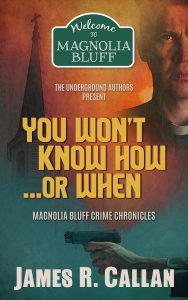
 use built by a man who rode with Buffalo Bill Cody. A retired newspaper editor, he is now librarian of his county historical society where he assists patrons with genealogy and research. He has published 19 novels and two non-fiction regional histories. He is a member of International Thriller Writers and a past vice president of the Short Mystery Fiction Society.
use built by a man who rode with Buffalo Bill Cody. A retired newspaper editor, he is now librarian of his county historical society where he assists patrons with genealogy and research. He has published 19 novels and two non-fiction regional histories. He is a member of International Thriller Writers and a past vice president of the Short Mystery Fiction Society.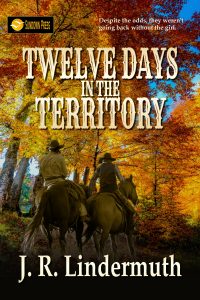

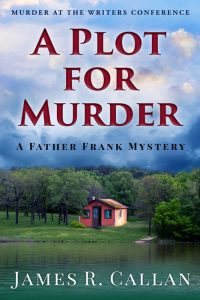 main speaker at a writers conference. But after the opening session and in front of a crowd, Maggie DeLuca, Father Frank’s sister, accuses Granet of stealing her story and says he will pay.
main speaker at a writers conference. But after the opening session and in front of a crowd, Maggie DeLuca, Father Frank’s sister, accuses Granet of stealing her story and says he will pay. has a number of mysteries published, including a four-book series centered around a cat who can actually solve crimes, and a three book series set during World War II. She’s multi-published in magazines and over twenty anthologies. But today she’s telling us a little about her latest mystery, The Spirit Woman of Lockleer Mountain. It weaves together mysteries about a secret government installation, a missing sister who may have amnesia, drug sales to teenagers, and sightings a illusive woman in a flowing green dress with a mountain lion, who just might be the legendary Native American Spirit Women.
has a number of mysteries published, including a four-book series centered around a cat who can actually solve crimes, and a three book series set during World War II. She’s multi-published in magazines and over twenty anthologies. But today she’s telling us a little about her latest mystery, The Spirit Woman of Lockleer Mountain. It weaves together mysteries about a secret government installation, a missing sister who may have amnesia, drug sales to teenagers, and sightings a illusive woman in a flowing green dress with a mountain lion, who just might be the legendary Native American Spirit Women.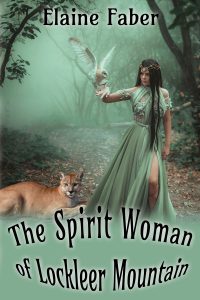 Unfortunately, I fear if I should ever be fortunate enough to find myself on that much discussed elevator, in spite of good intentions and hours of practice, I expect the conversation would more likely go something like this.
Unfortunately, I fear if I should ever be fortunate enough to find myself on that much discussed elevator, in spite of good intentions and hours of practice, I expect the conversation would more likely go something like this. Home School Enrichment who now creates novels where hope and quirky meet. She is also the co-founder of the blog Stitches Thru Time. When not writing, she enjoys spending time with her husband in Pennsylvania, reading, walking, and being a Grammie. Today, she’ll explore an aspect of being a pioneer and what it takes. And it is
Home School Enrichment who now creates novels where hope and quirky meet. She is also the co-founder of the blog Stitches Thru Time. When not writing, she enjoys spending time with her husband in Pennsylvania, reading, walking, and being a Grammie. Today, she’ll explore an aspect of being a pioneer and what it takes. And it is 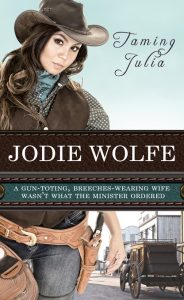 During the era, there were many such advertisements in the newspaper for a bride. My twist to the story is that the wife who arrives isn’t anything like what the minister wanted. So now he’s faced with a dilemma of what can he do to tame his new bride. It made for a fun story to write. Here’s a glimpse of the back cover:
During the era, there were many such advertisements in the newspaper for a bride. My twist to the story is that the wife who arrives isn’t anything like what the minister wanted. So now he’s faced with a dilemma of what can he do to tame his new bride. It made for a fun story to write. Here’s a glimpse of the back cover: Her latest is Small Town Mystery series, Book #2 – Murder at Maple Ridge. She’s had a varied career, including managing a sporting goods department and proprietor of a resume writing service. But her passion has always been writing fiction. Here she talks about the mystery of writing.
Her latest is Small Town Mystery series, Book #2 – Murder at Maple Ridge. She’s had a varied career, including managing a sporting goods department and proprietor of a resume writing service. But her passion has always been writing fiction. Here she talks about the mystery of writing.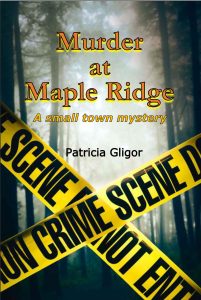 Which brings me to my newest release: Murder at Maple Ridge. Once again, an old house inspired me. One I’d driven by – and admired – for many years on the way to a park about an hour from where I live. The knowledge I gained working in sporting goods – about firearms and hunting –was invaluable.
Which brings me to my newest release: Murder at Maple Ridge. Once again, an old house inspired me. One I’d driven by – and admired – for many years on the way to a park about an hour from where I live. The knowledge I gained working in sporting goods – about firearms and hunting –was invaluable.